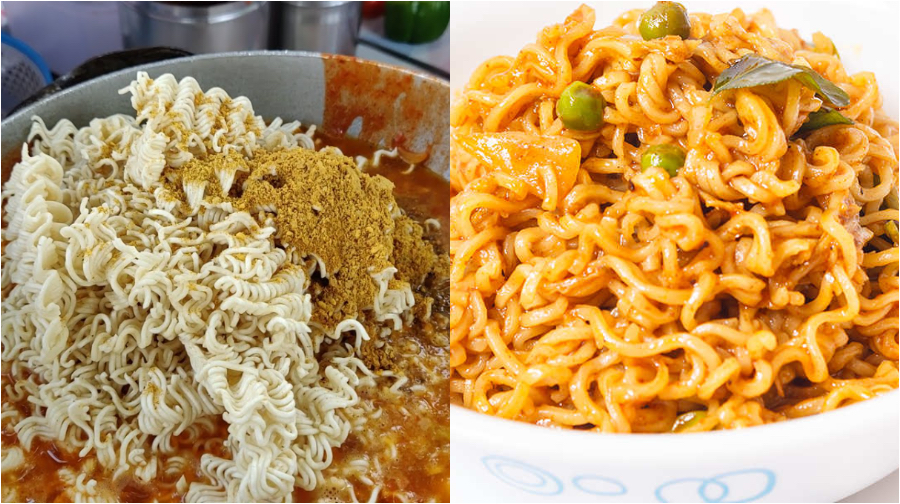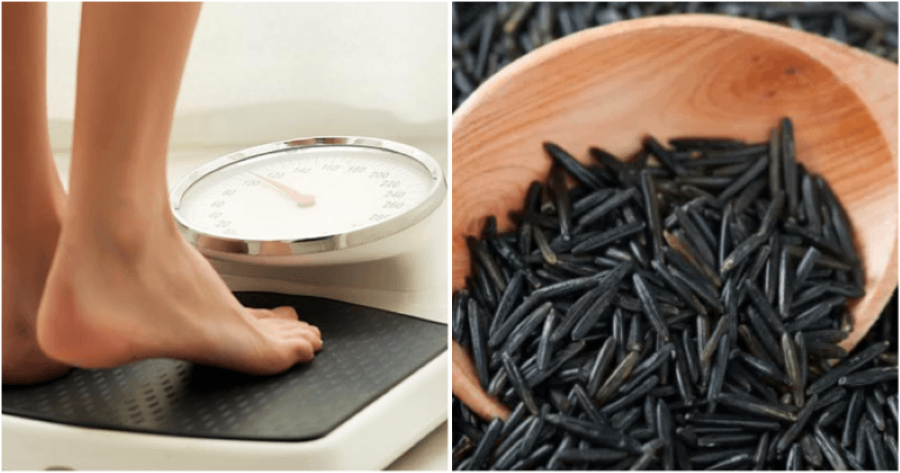Whoever told you eating fats would make you fat, has got his/her facts absolutely wrong! Eliminating fats is an absolutely wrong strategy to follow while trying to lose wight and rarely works. In fact, there is growing evidence that consuming “fats” in the right amount can actually motor up the whole “fat burning” process inside the body. The problem is that when people cut out healthy fats from their diet, the scope to include sugar and refined foods increases. Healthy fats boost metabolism and our body needs them for the absorption of fat-soluble vitamins like A, D, E which are necessary in the fat-burning process. In fact, the meal plans on Rati Beauty diet include a variety of healthy fats that can help you drop weight. On the contrary, if you have to cut anything out, do cut out these things mentioned below.


How Eating Fat Makes you Slim?
1. Each molecule of fat provides 9 calories per gram, whereas protein and carbs provide 4 calories each, so fat can keep you full for longer, reduce cravings and frequent snacking. But fat can quickly increase the calorie count, so one has to be careful not to go overboard.
2. Fat does not cause insulin spikes and “insulin” is a hormone that also triggers fat storage. When there is too much insulin in the blood stream, there are more chances of it getting stored as fat. Healthy fats do not trigger the release of excess insulin, slowing down the process of fat storage.
3. Healthy fats boost metabolism instead of making it sluggish.
4. Fats also help balance out important hormones.
5. Healthy fats are absolutely necessary for the absorption of fat-soluble vitamins like A, D, E which are necessary in the fat-burning process. Also read: “10 Amazing Weight Loss Strategies That Actually Work.”
6. They stimulate lipolysis.
7. Reduces inflammation in the body (omega-3 fatty acids).
8. Healthy fats regulate hunger hormones.
9. Since the brain is made of 60% fat, lack of healthy fats can cause in malfunctioning of brain signals and may lead to stress, anxiety, and even depression.
10. Prevents leptin resistance. Leptin is the “satiety” hormone which tells the body to stop eating when necessary energy is achieved through food. But with the rise in insulin levels and lack of adequate healthy fat, insulin tends to interfere with leptin’s performance, and as a result, you tend to eat more calories than required.
6 Things That Can Lead To Weight Gain:
1. Transfat: Transfat is commonly found in fried food, packaged baked items, margarine, etc. Transfat is artificially made from vegetable oils by a process called hydrogenation where hydrogen molecules are added to the oil. This is done to increase the shelf life of the oil, to solidy it, and make it more appetizing and suitable for frying. Also, transfat is an inexpensive way to add taste to the oil, but this process is extremely harmful to the human body due to the high proportion of LDL (bad cholesterol) which can cause havoc in the body and puts one at the risk of developing morbid diseases like type 2 diabetes, stroke, and heart disease. Research has shown that transfat not only leads to weight gain, it tends to mobilize fat from other areas of the body to the belly area!

2. Hyperpalatable Foods: This category of food may have ingredients like sugar, sodium, unhealthy fat, and certain synthetic ingredients that enhance their taste, triggering the reward center of the brain and release of “feel-good chemicals” that can put us in a constant state of craving, wanting to have more of such food. Also, since these foods are easily digested, they cause sharp rise in insulin and the subsequent dip causes imbalance in blood sugar levels, leaving one hungry within a short span of time. The problems with such foods is that they are high in calories, have unhealthy fat, sugar, and salt – leading to weight gain. Identify and avoid foods that are unhealthy and addictive in nature. Potato chips, brownies, chocolates, pizza, burgers, ice cream, candies, French fries, soft drinks are a few examples of hyperpalatable foods.
3. Added Sugar: Too much sugar (not only from white sugar but also from processed food), not only causes imbalance in your blood sugar levels, increases the calorie count, it raises inflammation and leads to weight gain and obesity. Not to mention, they also heighten the risk of type 2 diabetes.
4. Refined Carbs: White bread, chips, pasta, junk food, sweets, candies all have refined carbs that raise blood sugar sharply and then your body pumps out extra insulin to bring down the blood sugar level. This sharp slump in blood sugar will make you hungry all over again. Also, all those empty calories from refined carbs, with the help of insulin, get converted to fat, and get stored in the body.
5. Combination of Fat, Sugar, Sodium From Processed Stuff: Food companies spend millions of cash trying to come up with the right combination of sugar, fat, sodium to manipulate our tastebuds. When such a clever combination is achieved, we crave for such food because we experience pleasure since they hit the reward center of brain and trigger release of happy hormones. In fact, a study done on rats showed that when they were fed food with all three ingredients (fat, sugar, salt) in a manipulative proportion, their pleasure receptors overpowered the body’s natural mechanism of satiety. This tweaking of flavours to make the food highly appealing to the tastebuds is called hitting the bliss point. So, a bliss point is achieved when the right combination of fat, salt, sugar have been mixed to excite the tastebuds and to suppress the body’s satiety signals.
6. Last but not the least, Low-Fat Foods: When fat content is ripped from food, it usually makes it bland and tasteless. To appeal to the tastebuds of consumers, companies add stuff like heaps of sugar, refined carbs, salt, emulsifiers, and thickeners which add high amount of calories to the body. Such a tendency defeats the whole purpose where one is actually going “low fat” to lose weight. Most food items that are marketed as “low fat” and “fat free” replace fat content with loads of carbs that when not used as energy, get stored as fat in the body, particularly, around the waist, resulting in belly fat. Therefore, excessive sugar and carbs are major contributors to obesity than healthy fats. Consciously eating a low-fat diet also means you are not providing the body with fat-soluble vitamins like A, D, E, and K. When there is a deficiency of vitamins, particularly D and minerals like calcium, losing weight becomes much more difficult.
Summing up, fats are not bad, just pick the right kind of fats and practice portion control with them as well and lose weight like a boss.
Bliss Point and Why We Can’t Stop Eating Certain Foods
12 Most Common Diet Saboteurs




![Samosas_During_Weight_Loss_Journey[1]](https://makeupandbeauty.com/wp-content/uploads/2023/12/Samosas_During_Weight_Loss_Journey1.png)
